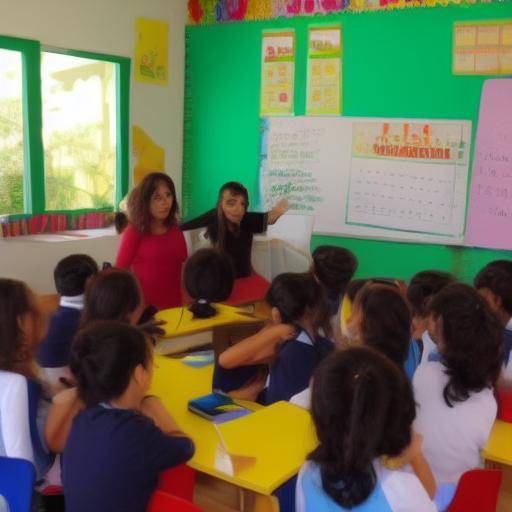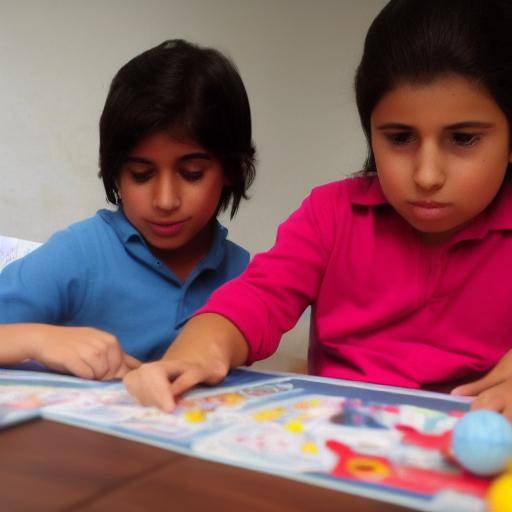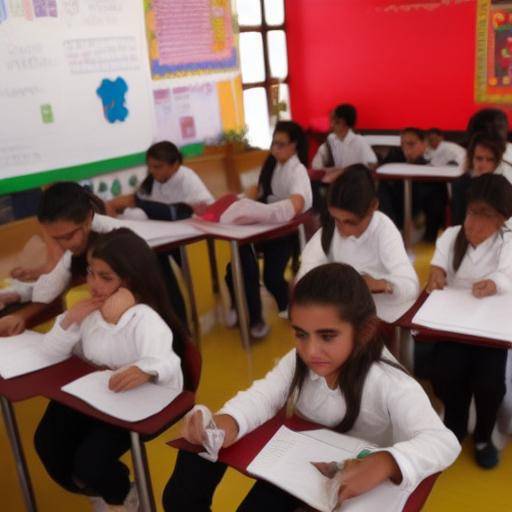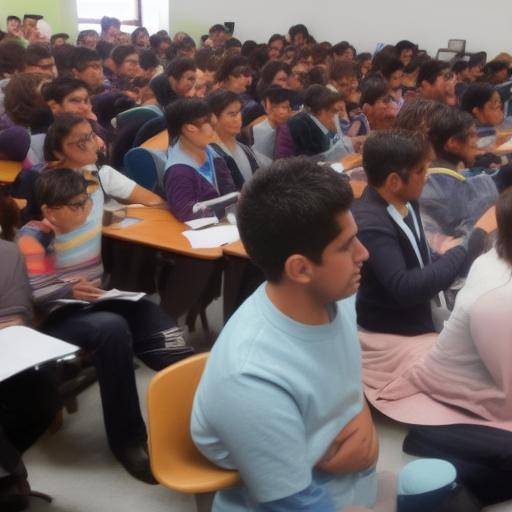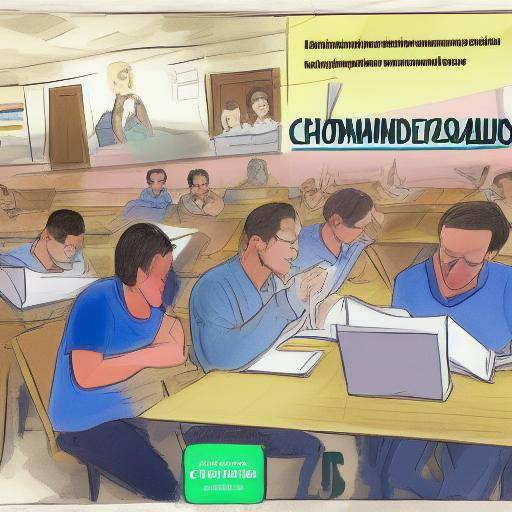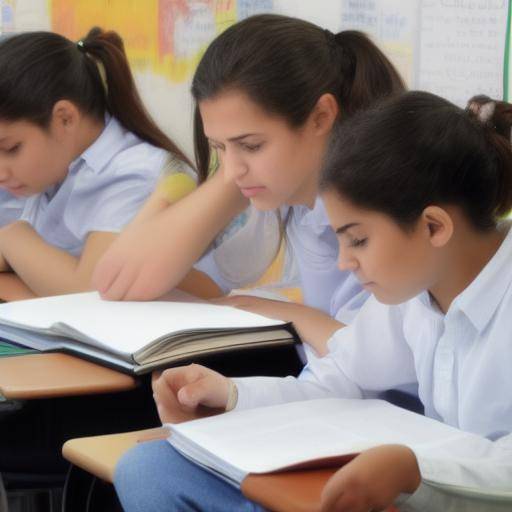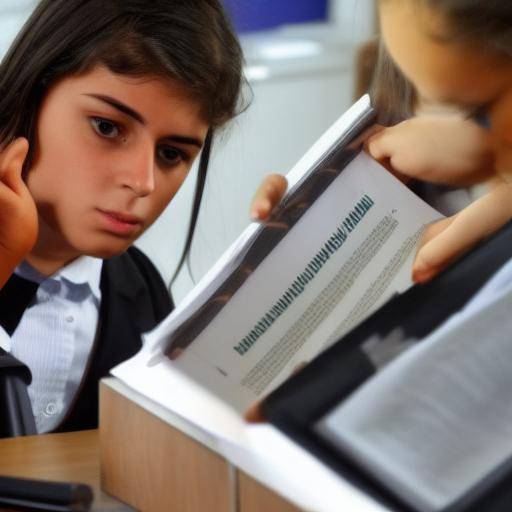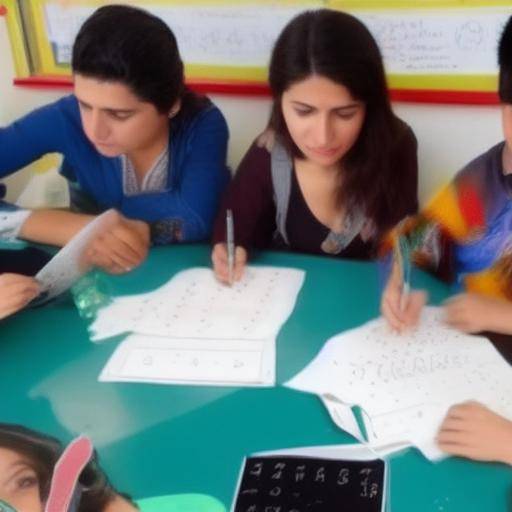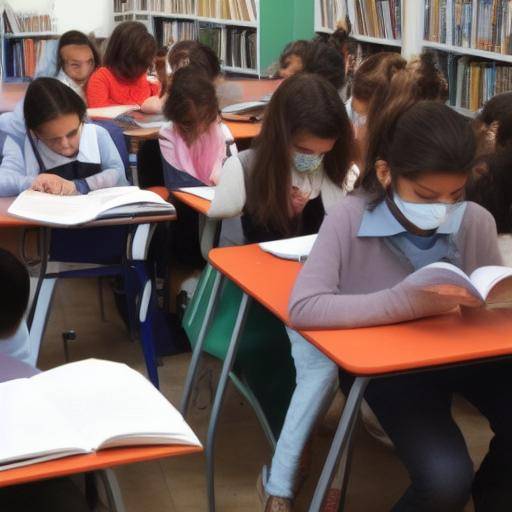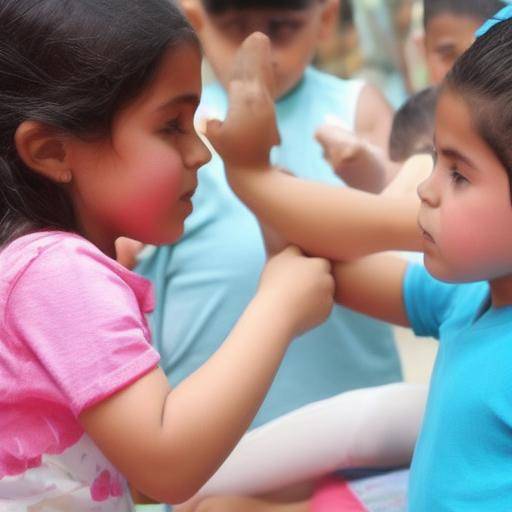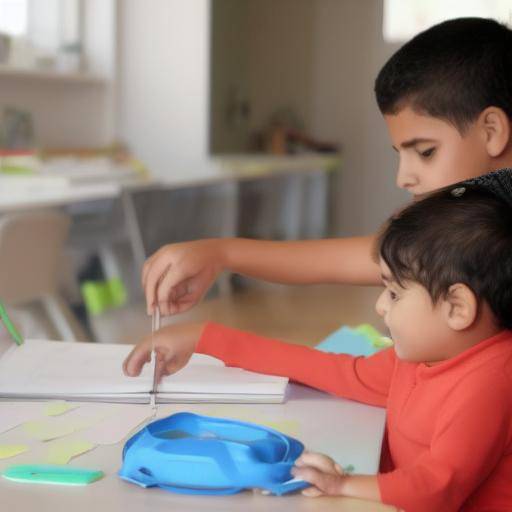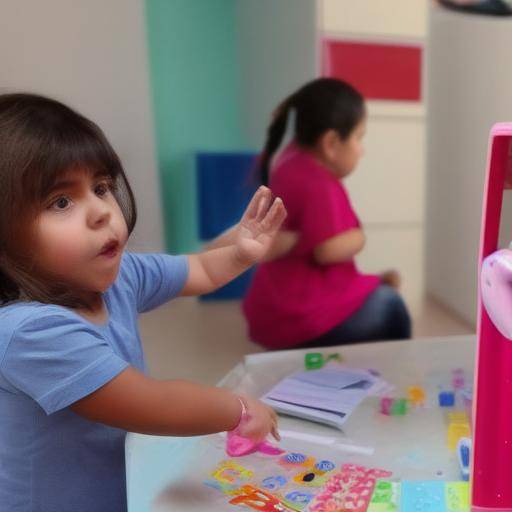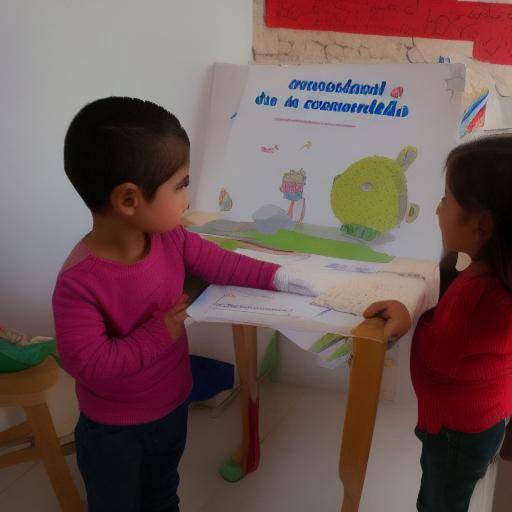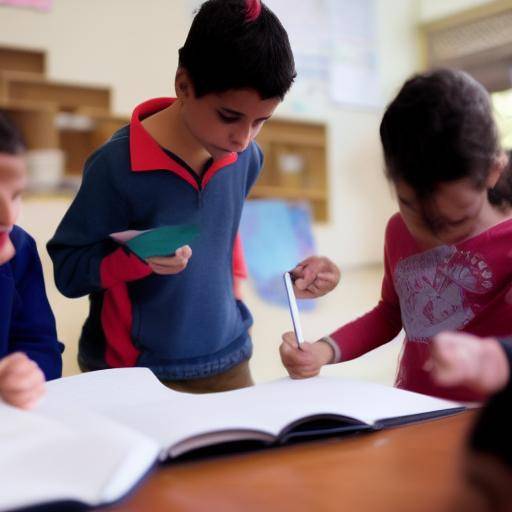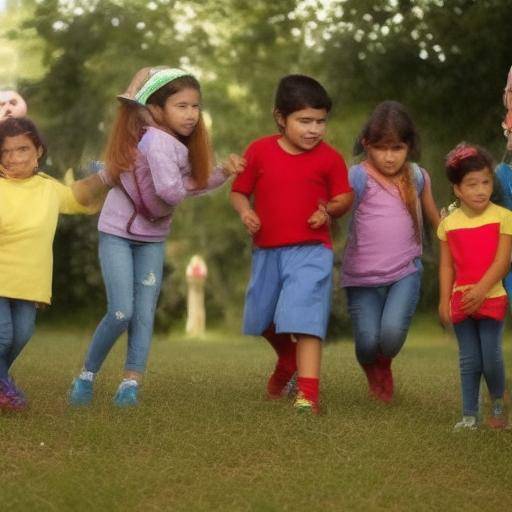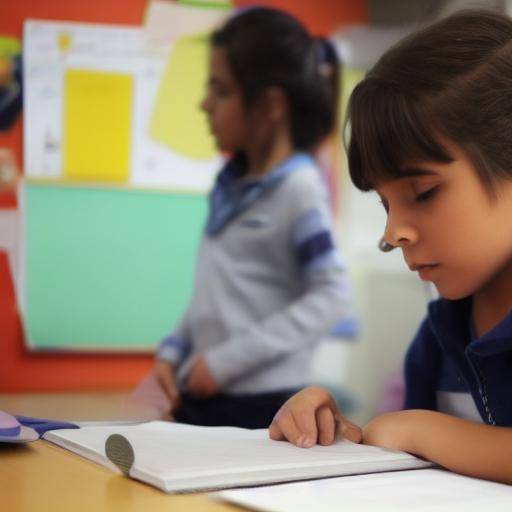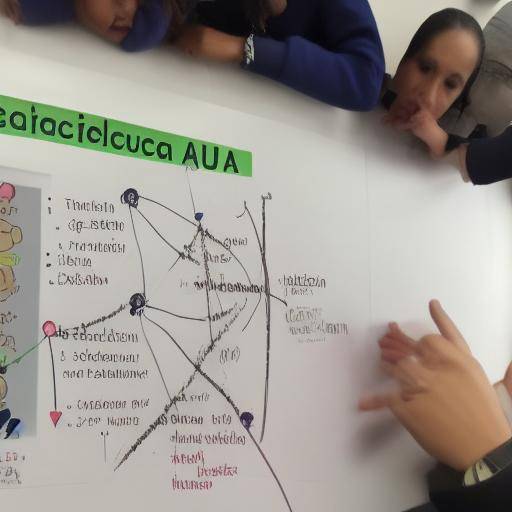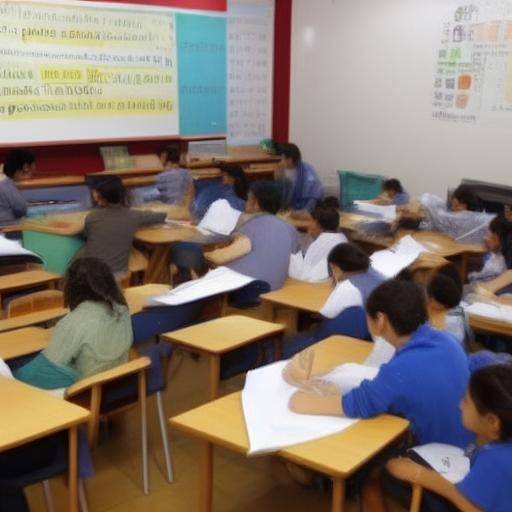
Introduction
The development of coping skills is crucial to the emotional well-being and resilience of students. In the academic environment, challenges and stress are inevitable, so teaching effective coping strategies is essential for both academic and personal success of students. In this article, we will explore in detail how we can teach students coping skills, their importance, effective techniques and practical advice. Since these skills can have a significant impact on the lives of students, it is essential to understand how to address this aspect of their development.
History and Background
The coping skills, also known as coping strategies, have their roots in psychology and psychiatry. Throughout history, they have evolved from various theoretical currents and therapeutic approaches. From Sigmund Freud's first studies on defense mechanisms to modern approaches to positive psychology and cognitive-behavioral therapy, the concept of coping has experienced significant development.
Significant developments
During the twentieth century, significant progress was made in understanding coping strategies. Since the 1980s, studies focused on identifying specific strategies that people use to cope with stress and adversities. These developments provided a solid basis for the development of intervention and education programmes in coping skills.
Relevant anecdotes
An important milestone in the field of coping skills was the pioneering research of Richard Lazarus, who developed the transactional model of stress and coping. This revolutionary approach highlighted the importance of constantly assessing the relationship between the individual and the environment in stressful situations, which influenced the way in which coping skills are taught.
Detailed Analysis
The development of coping skills in students entails a number of significant benefits, covering both the academic and emotional spheres. These skills provide them with the tools necessary to manage stress, solve conflicts and adapt to challenging situations. However, their teaching poses unique challenges, such as adapting to the individual needs of students and effective integration into the educational environment.
By exploring the benefits of teaching coping skills, it is crucial to consider the positive impact they can have on academic performance. Studies have shown that students who possess sound coping skills tend to present better academic performance, greater motivation and a more positive attitude towards learning.
Perspectives and Views
From a broader perspective, the teaching of coping skills contributes to the comprehensive training of students, preparing them to face the challenges of adult life. By providing them with tools to manage stress and pressure, their emotional well-being is encouraged and the foundations for their personal development throughout their lives are laid.
Comprehensive review
The coping skills can be taught in various ways, each with their own particularities and approaches. The practical application of these skills in educational environments requires a comprehensive approach that combines solid theoretical approaches with practical strategies.
Best Practices
One of the best practices to teach student coping skills is the integration of approaches based on positive psychology. These approaches focus on the development of resilience, optimism and self-efficacy, providing students with tools to address stress in a constructive way.
Approaches to Consider
In addition, incorporating mindfulness and meditation techniques can provide students with a space to manage stress and cultivate full attention. The promotion of self-care and the establishment of sound emotional connections in the school environment are also essential to fostering healthy coping skills.
Comparative analysis
Compare the coping skills with the teaching process and the role of students in this context allows us to identify similarities, differences and opportunities for synergy. While coping skills focus on stress management and adversities, teaching involves knowledge transmission, skills and values. Students, in turn, are key actors in the process of acquiring skills and academic and personal development.
Ejemplified Scenarios
An example of synergy between these areas is observed by fostering problem solving as a coping skill that integrates into the teaching-learning process. In addressing academic challenges with a proactive resolution mentality, students acquire skills that will be useful to them both in the academic sphere and in their daily lives.
Practical Tips and Accessible Recommendations
- Promote self-care through mindfulness practices and self-reflection.
- Provide safe and supportive spaces for students to share their concerns and emotions.
- Integrate the development of coping skills in the school curriculum through specific activities.
- Offer resources and tools that facilitate the practice of coping skills, such as relaxation exercises and breathing techniques.
Perceptions of Industry and Expert Reviews
Future Implications
Education experts agree that the teaching of coping skills will require deeper integration into educational systems to address the growing emotional and social demands of students. In addition, collaboration between teachers, parents and mental health professionals is considered crucial to providing comprehensive support to students in their development of coping skills.
Case Studies and Practical Applications
Specific Scenario
A relevant case study is the pilot program implemented in a secondary school, where mindfulness sessions and self-reflection exercises were integrated into school hours. Following the implementation of the program, a significant decrease was observed in the stress levels reported by students, as well as an improvement in their emotional well-being and interpersonal relationships.
Future Trends and Predictions
Prospective perspective
The teaching of coping skills is expected to continue to gain relevance in educational settings, with a specific focus on integrating interdisciplinary approaches and developing teacher training programmes in this area. In addition, there is an increase in collaboration between academic institutions and mental health professionals to provide comprehensive support to students.
Conclusions
In conclusion, the teaching of coping skills to students is a fundamental aspect of academic and personal development. By providing them with the tools necessary to manage stress, resolve conflicts and cultivate resilience, they lay the foundation for integral and sustainable development. It is essential that the teaching of these skills be multidimensionally addressed, integrating it into the school curriculum and providing solid emotional and social support to students.
Frequently asked questions
What are some effective strategies to teach students coping skills?
There are various effective strategies to teach students coping skills, such as integrating approaches based on positive psychology, promoting self-care and full attention, and building safe and supportive spaces for emotional expression.
To what extent can coping skills impact student academic performance?
The coping skills can have a significant impact on academic performance, as students who possess these skills tend to present better performance, greater motivation and a more positive attitude towards learning.
What is the role of teachers in teaching coping skills?
Teachers play a crucial role in teaching coping skills by providing guidance, emotional support and safe spaces for students to develop these skills. In addition, the integration of coping techniques into the school curriculum is essential for its effective teaching.
What are future trends in the teaching of coping skills?
The teaching of coping skills is expected to continue to gain relevance in educational settings, with an approach to integrating interdisciplinary approaches and collaboration between academic and mental health professionals.
How can students apply coping skills in their daily lives?
Students can apply coping skills in their daily lives by effectively managing stress, proactive problem solving, promoting self-care and establishing healthy interpersonal relationships.
To what extent does the coping skills impact the emotional health of students?
The coping skills have a significant impact on students' emotional health by providing them with tools to manage stress, regulate their emotions and cultivate resilience.
What are the challenges in teaching student coping skills?
Some challenges in the teaching of coping skills to students include adapting to the individual needs of students, effective integration into the educational environment and promoting the active participation of students in the development of these skills.
Conclusion: This article offers a comprehensive insight into how to teach students coping skills. From its historical importance to current practical applications and future trends, the development of these skills is fundamental to the well-being and success of students. By integrating effective strategies, providing sound guidance and promoting a support environment, educators can play a crucial role in developing coping skills for a generation of resilient and life-saving students.



